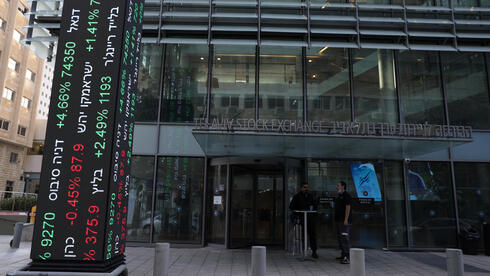Just like in sports, the stock market has its own leagues. The biggest and most influential stocks—such as the banks, Teva, Elbit and Bezeq—are listed on the TA-35 Index. Following that are the TA-125, TA-90 and finally the TA-60, which is considered the small-cap index, based largely on market value and liquidity, and is therefore less sought after.
Israeli retail investors and investment managers alike tend to focus on companies in the leading indices, meaning most investment flows into the TA-35 and TA-125. A company that manages to move up a league and join the TA-125 gains significant exposure and attracts automatic investments from pension and mutual funds. Beyond the prestige of being included in the TA-125 or TA-35, it has real implications for a company’s business—its liquidity, meaning trading volume, the attention it receives, and ultimately, its market value.
4 View gallery
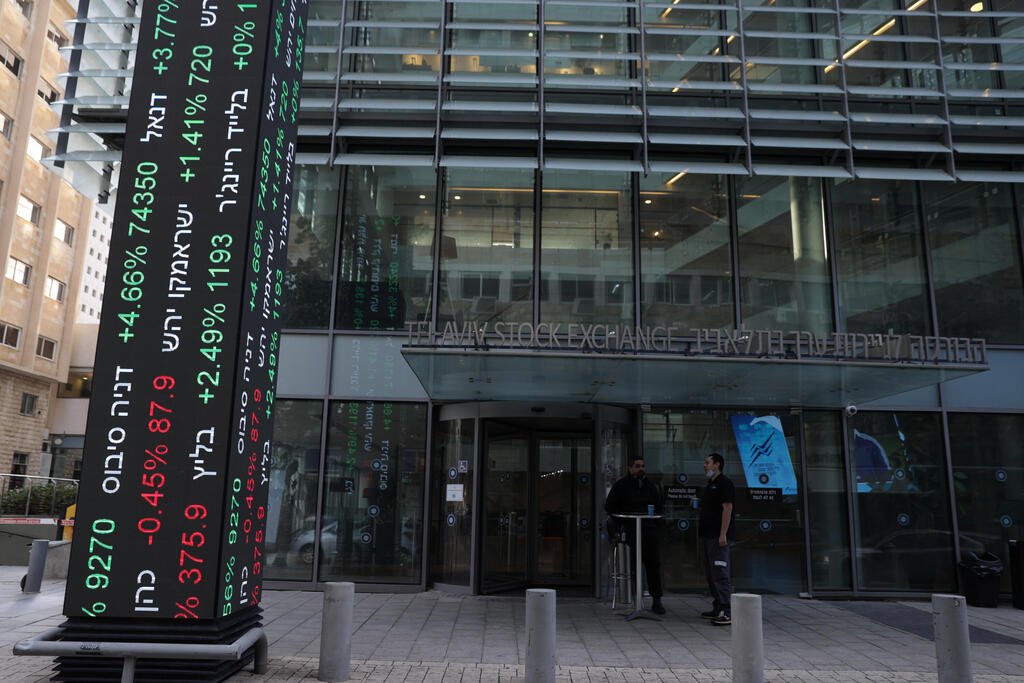

Tel Aviv Stock Exchange
(Photo: Orel Cohen)
Still, even in the less prestigious TA-60, there are sometimes hidden gems. An analysis of the 10 best-performing stocks in the TA-60 reveals both familiar and lesser-known companies, including Castro, Top Gum, Mor Investments, Rimon Infrastructure, Cohen Development and others.
“I used to be the head of indices, and I was constantly getting calls from companies asking what they needed to do to move up a league,” said Yaniv Pagot, deputy CEO for trading at the Tel Aviv Stock Exchange. “Over the years, the competition to get into the TA-125 has become tougher. In the past seven years, there have been many IPOs. Media coverage naturally focused on those that went bankrupt, but among those that survived, one in five companies in the TA-125 is a new addition to the index.”
“There’s a long list of newly listed companies that surged ahead and replaced others that were relegated to the TA-60—an index that once included truly small companies but today includes some that have dropped a league,” he added.
“Today, even a company with a market cap of 1.5 billion shekels might not make it into the desired index. In the last index update in May, we saw some reshuffling. Some companies moved up, like Meitav and IBI. Currently, there are four investment houses in the TA-60. The index manages 600 million shekels and has gained 24% since the start of the year.”
Mor Investments and its subsidiary Mor Gemel and Pension manage portfolios for the public, mutual funds and pension and provident funds. The company is owned by the Levi family, whose members run it, alongside partners Benny and Yossi Meirov, diamond-dealing brothers. Some observers say Mor has become the brightest gem in the Meirov portfolio after soaring 333% over the past three years, reaching a market value of 3 billion shekels.
What propelled the company, which went public in 2017 at a valuation of just 320 million shekels? Massive inflows from the public into mutual and pension funds amid a bull run on the Tel Aviv Stock Exchange over the past two years—despite the war, or perhaps because of it, as investors bet on economic recovery once the conflict ends.
To put things in perspective: Mor’s mutual fund assets total approximately 53 billion shekels, up 18% since the beginning of the year. The company is now a candidate for the TA-90 Index. Its ETFs and index funds amount to 22 billion shekels, and an additional 10 billion shekels are managed through investment portfolios. Altogether, the firm manages 170 billion shekels in assets across pensions, provident funds and other vehicles as of the first half of 2025.
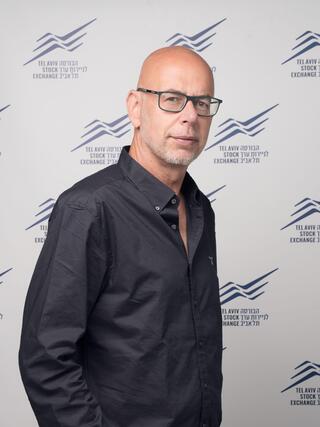 Tel Aviv Stock Exchange Deputy CEO for Trading Yaniv PagotPhoto: Nicky Westphal
Tel Aviv Stock Exchange Deputy CEO for Trading Yaniv PagotPhoto: Nicky Westphal
But the explanation for Mor’s success isn’t just its solid—sometimes exceptional—returns, especially in the pension sector. Luck has also played a role. A significant part of its rise stems from the crisis that hit Altshuler Shaham, another major investment house, which has been hemorrhaging clients and capital due to returns that underperformed its competitors, particularly in pension and provident funds.
That downturn began in 2021, when Altshuler made a big bet on the Chinese market that failed to deliver. This year, it held a large position on Wall Street, where indices lagged behind the soaring Israeli market. Competing firms entered the Tel Aviv Stock Exchange earlier and profited handsomely. That said, Altshuler did see a windfall last week from its Wall Street exposure, logging a $100 million profit on its Oracle holdings after the tech stock jumped dramatically.
Many of those fleeing Altshuler turned to Mor and to other firms like Analyst, which surged to third place in the rankings with a 115% return and a market value of 1.4 billion shekels—after years of hovering in the low hundreds of millions. Analyst now manages 99 billion shekels across investment portfolios, pension funds, and mutual funds.
Ayalon Insurance, one of the smaller players in the market compared to firms like Phoenix and Clal, had long stagnated—but after a change in ownership, its stock has soared 130% since the start of the year and 287% over the course of 2024, tripling in value. Insurance stocks have been among the market’s top performers over the past year: the insurance index was the “star of the market” in 2024, climbing more than 60% due to rising company profits and posting the highest return among all indices.
This growth, however, has come largely at the expense of consumers. The rise was driven by increases in premiums for basic insurance policies (home, auto, etc.), adjustments in health insurance rates that resulted in higher prices, and a boost from improved equity and bond market performance. A new accounting standard also allowed insurers to recognize profits earlier. And when it rains, everyone gets wet—including Ayalon, which ended the first half of 2025 with a 92% jump in net profit, reaching 210 million shekels.
Despite being one of the most recognizable fashion brands in Israel, Castro is listed on the TA-60 Index, with a market value of just 1.3 billion shekels. The company has recently undergone a major turnaround after years of declining sales and criticism that the brand had grown stale in the face of global competition.
In 2019, Castro posted an annual loss of 85 million shekels, followed by an 87 million shekel loss in the first quarter of 2021—leading some to declare the brand’s demise. But Castro’s comeback story deserves study, and it’s not thanks to the Castro fashion chain itself, but to a generational shift—and not within the founding family.
In 2018, under the leadership of Gabi Rotter (son-in-law to the founding Castro family), the company merged with Hoodies, led by Yoram Gavizon, a creative and aggressive entrepreneur in the fashion world. Gavizon brought with him brands like Carolina Lemke, Hoodies, Top Ten and later Urbanica. Over time, Gavizon—who specializes in targeting younger, price-sensitive consumers—gradually took over control from the Rotter family.
4 View gallery
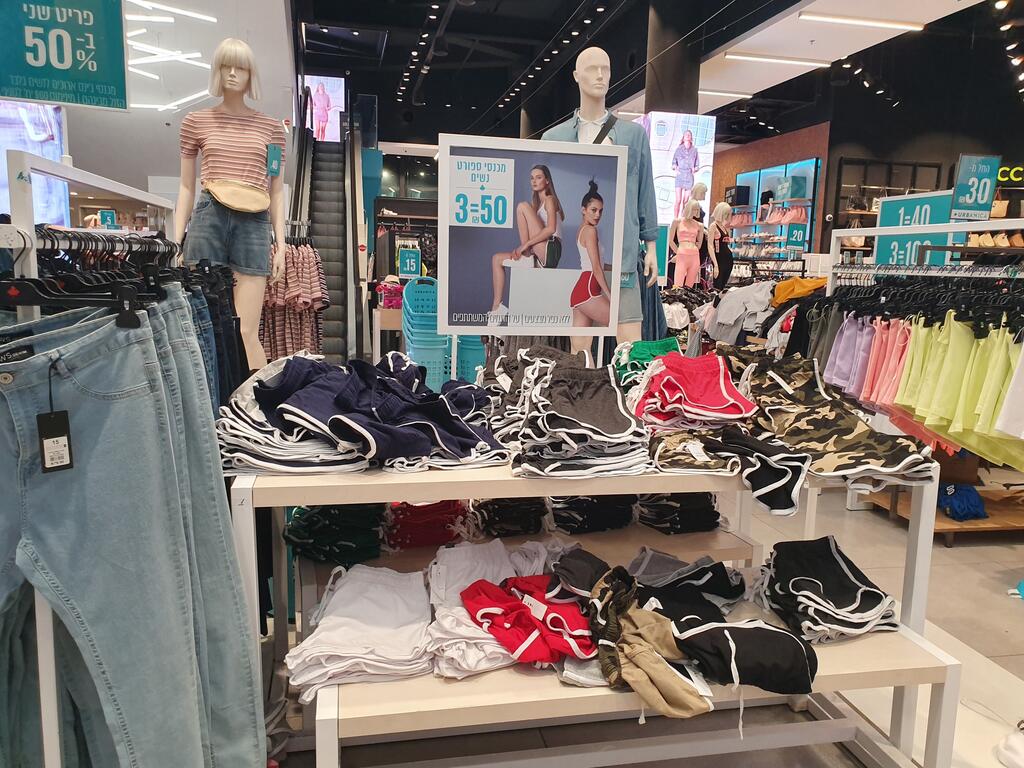

Urbanica
(Photo: Meirav Crystal)
Ron Rotter, the son who served as CEO, stepped down. Gabi remained as chairman. Eti Rotter, responsible for the Castro design studio, also exited. Gavizon, together with longtime partners from his childhood in Dimona, took over management and launched a sweeping efficiency campaign: closing 30 Castro stores, aggressively renegotiating rent with landlords and malls, replacing Castro’s designers and continuing to develop the brands he had introduced.
Today, Castro-Hoodies’ main profit center is Urbanica, which Gavizon founded. It now generates 46% of the group’s revenue and 72% of its operating profit. Carolina Lemke and Hoodies are also profitable. The Castro brand itself is still in recovery.
What matters is that investors have rediscovered the company. In the second half of 2025, despite a drop in profits due to halted trading days during the 12-day war against Iran, the company showed confidence by declaring a 200 million shekel dividend. The move signaled that despite the large cash outflow, management believes in the group’s financial strength and expects continued improvement.
In the second quarter of 2025, Castro posted a net profit of 23 million shekels—a 59% drop year over year—but its share price rose 13% that same day, reflecting renewed investor confidence.
Keystone, a relatively unknown investment fund among the general public, is one of the controlling shareholders in Israel’s largest bus company, Egged. Founded and publicly listed in 2019 by capital market veterans Roni Biram, Navot Bar and Gil Dotish, Keystone focuses on infrastructure investments: it owns 50% of the Ashkelon desalination plant, holds stakes in the Ramat Hovav and Hagit power stations, and has interests in Highway 6 and the Carmel Tunnels operator, as well as in public transportation ventures.
4 View gallery
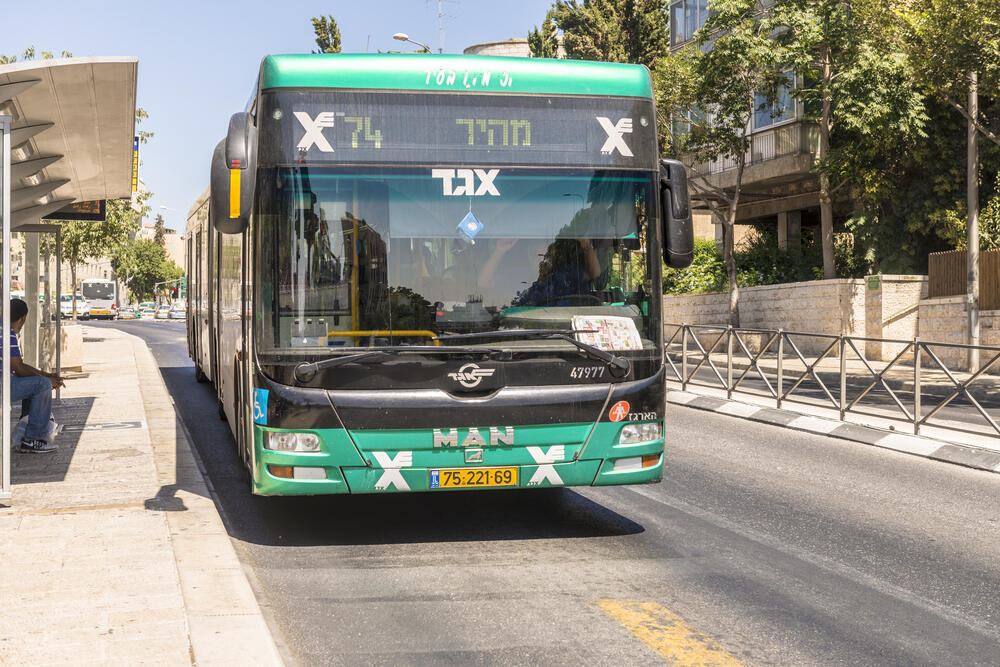

Egged
(Photo: Igor Rozhkov \ Shutterstock)
Not the flashiest sector, but since the war, infrastructure companies have become a market favorite. Among them is Rimon, which operates in water, energy and infrastructure, and is owned by Granot, the largest kibbutz economic organization in Israel, representing 41 kibbutzim. Rimon delivered an 82% return this year, fueled by investor optimism that post-war Israel may emerge as the “Switzerland of the Middle East.”
Keystone’s stock has risen 70% since the beginning of the year, initially due to expectations of infrastructure rebuilding after wartime damage, and later thanks to broader hopes for an economic boom once the conflict ends. Traditionally, such funds attracted mostly institutional investors. Keystone’s stock began on the TA-90 Index but was later downgraded to the TA-60.
Still, fund managers continued to bid on tenders and close deals. As the Tel Aviv Stock Exchange picked up and talk of post-war recovery gained traction, investors started anticipating value creation and profitable exits from Keystone’s holdings, driving its share price up after a long slump.
Generation Capital, ranked ninth with a 53% return, is another infrastructure investment fund, owned by Yossi Zinger and Erez Balesha. It focuses on energy—power stations including in Alon Tavor, natural gas, water treatment and waste management. Like Keystone, it also owns a public transportation company, Bon Tour. One of its more surprising investments was acquiring a 30% stake in Porterbrook, a British railway and transport company. Generation’s asset portfolio totals 4 billion shekels.
The oil and gas index also surged. Cohen Development, controlled by prominent investors such as George Horesh (Toyota’s importer in Israel), Gideon Tadmor and Yitzhak Suari, acquired control in 2020 from Delek Group. The company is involved in oil and gas exploration and receives royalties from the Leviathan and Tamar natural gas projects. It is also developing real estate in Petah Tikva in partnership with Delek.
It’s an extraordinary success story that began with a small gummy candy factory in Sderot. Hai Hayun, born in Dimona and formerly the owner of a minimarket in Ashdod, sold bulk candy—including gummy worms—until he discovered that many of them were not kosher due to gelatin derived from pig bones. Determined to offer a kosher alternative, he began producing gummies using fish-based gelatin.
4 View gallery
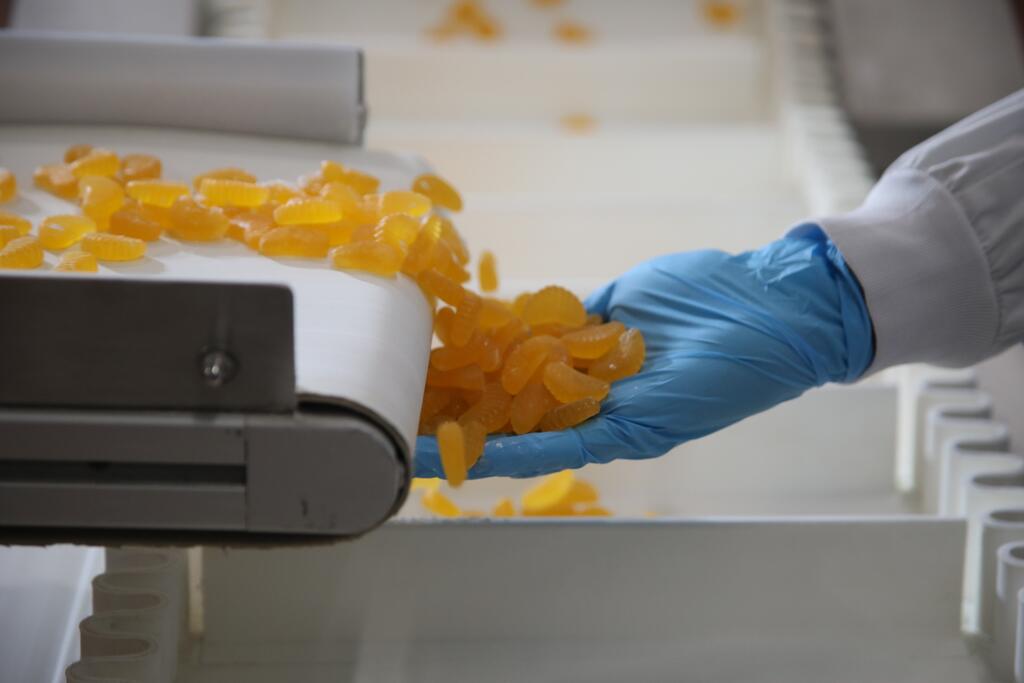

Top Gum factory in Sderot
(Photo: Aharon Gedalia)
At international candy trade shows, Hayun encountered gummies with added nutritional supplements and decided to enter that space, producing sugar-free and eventually vegan-friendly products by using fruit-based pectin as a gelling agent. In 2020, he brought in investors—including pharma entrepreneur Mori Arkin and a private equity fund—who invested $17 million in the company.
Top Gum developed proprietary formulas and capitalized on a growing global trend. Today, the factory supplies major U.S. clients, including a Nestlé subsidiary, as well as leading international OTC (over-the-counter) drug brands.
The company went public in 2021 at a post-money valuation of around 500 million shekels. Since then, its value has doubled to 1.1 billion shekels. Its stock is up 38% year to date. Recently, it raised an additional 100 million shekels to support its rapid growth, which has included acquiring a similar company in Canada and completing a new robotic factory in Sderot. Within just a few years, Top Gum has become a global leader in its category.
In the first half of 2025, the company posted a 51% rise in revenue, reaching $22.6 million. Net profit soared 140% to $3 million.
